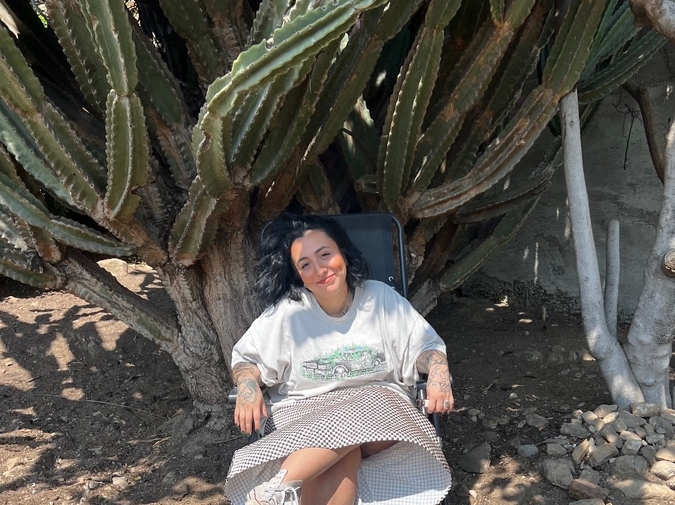John Street, East Providence. A third-floor summer sublet, sterile and bright—refuge after months of squatting in grime and chaos. We sublet from a Brown University student who left for the summer, eager to have her rent quietly covered. The apartment smelled faintly of cleaning solution and new paint—a stark contrast to the rest of our lives: vomit-stained bathrooms, sweat-soaked sheets, a constant haze of uppers and whiskey.
I was in love with a Black, nonbinary townie whose voice and body carried the scent of whiskey—woody, sweet, alluring yet heartbreaking. Their pores were steeped in sugar and sadness, marinated in alcohol and longing. We moved in seeking stability, or ruin, or simply to stay alive long enough to pretend.
Rent was split three ways between us and David, our third roommate—a studious, polite international student from Brown. David was quiet. Disciplined. Impossibly neat. He lined his shoes by the door, left Post-it notes about noise, wore headphones even when the apartment was empty.
Once, David joined us at the Scurvy Dog. He ordered a drink, attempted conversation with townies, and watched our world with polite confusion. His presence underscored our unraveling: loud, messy, addicted. Eventually, he retreated behind the safe perimeter of his door, his headphones the boundary.
Some nights we staggered home high. Others we fought in whispers about money, groceries, the haunting shapes of who we used to be. We apologized in clean dishes, silent gestures, and forgotten promises. The sterile surfaces around us reflected our disarray like a mirror too honest to break.
One grotesque morning, our friend Dani—frequent companion in cocaine-fueled escapades—stumbled from the spare room, blacked-out, around sunrise. David watched from his doorway in mute disbelief as Dani pulled out a dining chair, mistook it for a toilet, and urinated onto the polished wooden floor. She wandered back to bed in silence. David never mentioned it. Neither did we. I scrubbed the floor in quiet shame. It was horrifying. Absurd. Emblematic. Our lives, distilled.
The summer stretched hot and claustrophobic. The apartment’s pristine cleanliness became oppressive, each immaculate surface a mockery of our unspoken failures. We lived beyond our means; rent money disappeared into coke, bar tabs, cigarettes, forgotten meals. David’s silence grew louder, his door always shut, his shoes lined up like quiet accusations.
There wasn’t an explosion—just erosion. An incremental surrender. We stopped unpacking groceries. My lover began sleeping on the couch. We stopped saying goodnight. David’s presence dwindled to a thin line of light beneath his door—extinguished on nights our fights turned cruel.
One night, returning home from the bar, we were sticky with sweat and bar jukebox static, chewing gum and swapping shirts, trying to believe bruised didn’t mean broken. The lights were off. David’s room was empty. Bed stripped, rice cooker gone. The silent accusation was total.
In the kitchen, my lover lit a cigarette and avoided my eyes. “I don’t want to do this anymore,” they whispered.
“Which part?”
“All of it.”
No reply came. No words could bear the loss without betraying it.
The next morning, I packed quietly—books, a denim jacket, a perfume bottle saved for the day I’d feel human again. I kissed their head. They didn’t move. I left rent in cash on the counter, neatly folded—an apology or an insult, ambiguous but intentional.
We owed rent to no one. But I paid anyway—
Because someone should.
Because that summer cost more than we could name.

